Affiliates
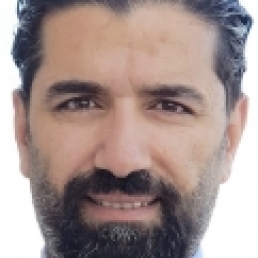
Tayseer Alkarim
Dr. Tayseer Alkarim is a physician, humanitarian, and human rights activist originally from Syria and now living in France as a political refugee. After the outbreak of violence in Syria in 2011, Dr. Alkarim put his career as an oncologist on hold to devote himself entirely to humanitarian aid, particularly in armed conflict zones and forced displacement settings.
In 2011, Dr. Alkarim co-founded Doctors Coordinate of Damascus, the first grassroots network of health workers to provide medical care to injured civilians of the Syrian civil war in underground field hospitals and health facilities.
For more than a decade, Dr. Alkarim has participated in, led, and built humanitarian operations in some of the world's most dangerous conflicts, including the civil war in Syria, the Battle of Mosul in Iraq, and the civil war in Yemen. He has also been on the front lines responding to mass displacements, such as in Greece and Uganda.
Dr. Alkarim regularly leads short-term medical interventions to address unmet humanitarian needs in crisis-stricken communities across the Middle East (Syria, Iraq, Yemen, Turkey, and Jordan), Europe (Greece, Italy, and Ukraine), and Africa (Uganda and Mali). He also manages humanitarian projects remotely in numerous other countries. His extensive first-hand experience has enabled him to closely examine the intersections between humanitarian partners, armed conflict actors, and affected communities.
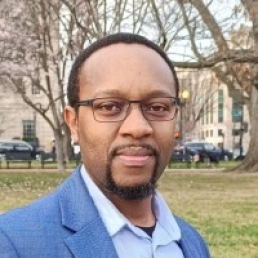
Allen G.K. Maina
Dr. Allen G.K. Maina is the Chief of Public Health Section at the United Nations High Commissioner for Refugees (UNHCR). He has close to two decades of work experience, including as a government clinician in a refugee camp in northern Kenya in the early years and subsequently joining international organizations working across different portfolios. He has coordinated public health responses in various complex emergencies primarily in Africa, Europe, Asia and the Middle East and has contributed to various publications, some of which have informed key policy and operational reforms in public health.
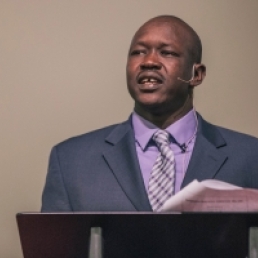
Jacob Atem
Dr. Atem recently joined the Center of Humanitarian Health as a postdoctoral student. Dr. Atem will be working with Dr. Paul Spiegel and other colleagues at the Center of Humanitarian Health on: 1)"Integrating Refugees into National Health Systems: Enhancing Equity and Strengthening Sustainable Health Services for All"; 2) a case study of cholera epidemic in Yemen funded by OFDA; and 3) Help faculty with responsibilities relating to those of a Teaching Assistant for certain courses in the OPAL Master of Applied Science (MAS) in Humanitarian Health in the fall, 2018.
Before becoming a postdoctoral student at the Center for Humanitarian Health, Jacob, received a Bachelor of Arts degree in Pre-Medicine/Biology from Spring Arbor University in 2008 and a Master of Public Health from Michigan State University in 2010. He received his Ph.D. in Environmental and Global Health from the University of Florida in 2017.
The title of his thesis was: “Characterization of Risk Factors, Morbidity, And Mortality Associated with Diarrheal Disease Among Children Under Five (CU5) in East African Refugee Camps”.
He spent most of his life as one of the original Lost Boys of South Sudan. He is the President and Chief Executive Officer (CEO) of Southern Sudan Healthcare Organization (SSHCO) from 2008-present: (www.sshco.org). SSHCO is a non-profit that provides medical facilities, supplies, and healthcare-education to the people of South Sudan. At the age of six, Jacob traveled over 2,000 miles to escape a brutal civil war in South Sudan that claimed his family. For nearly a decade, he lived in an overcrowded Kenyan refugee camp where hunger and disease were daily struggles. Jacob dedicated his life to healthcare education and medical service. Adhering to SSHCO’s mission, which focuses on natives helping natives, he advocate for refugees and displaced persons around the world. Under his leadership, SSHCO aims to inspire hope and improve the quality of life for the lost.
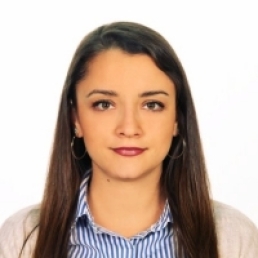
Kim Berg
Kim Berg is a child and adolescent psychiatry resident working on issues of public mental health and refugees, with a focus on trauma. She completed her medical internship in her native Slovenia and is currently based in Zurich, Switzerland at the child and adolescent psychiatry division of Psychiatric University Hospital Zürich. Before moving to Switzerland, Kim earned her Master in Public Health Degree (MPH) from Johns Hopkins University Bloomberg School of Public Health with a concentration in Humanitarian Health and her MD at the University of Maribor. Later, she worked on a joint JHU/USAID/Action Against Hunger project focused on Rohingya refugee women and their children in Cox’s Bazar Bangladesh.
At the University of Zurich’s child and adolescent psychiatry division, Kim is working on various projects focused on unaccompanied minor refugees, asylum seekers, and most recently, Ukrainian refugee families and their children. She is leading the clinical implementation of the EASE (Early Adolescent Skills for Emotion) as a part of a pilot project for Ukrainian refugees in Kanton Zurich. EASE is a scalable group psychological intervention for young adolescents developed by the WHO.
She is currently enrolled in the Master of Business Administration (MBA) degree in International Health Management at the Swiss Tropical and Public Health Institute at the University of Basel.

Rick Brennan
Rick Brennan is Regional Emergency Director for the World Health Organization’s (WHO) Eastern Mediterranean Regional Office, based in Cairo, Egypt. Previously, he had spent seven years at WHO headquarters as Director of Emergency Operations, Director of Ebola Coordination and Response, and Director of Emergency Risk Management and Humanitarian Response.
Rick has extensive experience in humanitarian settings in over 35 countries across Africa, Asia, the Middle East, and Eastern Europe. He received his medical degree fromor the University of Sydney and undertook emergency medicine training in Australia and the United States. After receiving a Masters of Public Health degree from Johns Hopkins University, he worked with the US Centers for Disease Control and Prevention (CDC) on humanitarian, chem-bio-nuclear and civil-military issues. Thereafter, Rick spent 10 years as the Health Director of the International Rescue Committee (IRC) in New York, overseeing technical support to humanitarian programmes world-wide. Immediately prior to joining WHO, he spent two-and-a-half years with JSI Research and Training in Liberia, managing a large post-conflict health system reconstruction project.
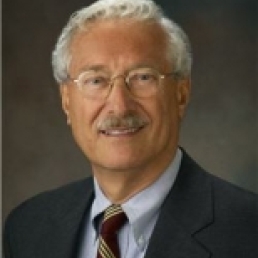
Skip Burkle
Professor Burkle is Senior Fellow & Scientist, the Harvard Humanitarian Initiative, Harvard University and Harvard School of Public Health, and former Senior Scholar and now Senior Associate Faculty and Research Scientist, the Center for Refugee & Disaster Response, Johns Hopkins University Medical Institutes. He is a Senior International Public Policy Scholar, Woodrow Wilson Center for International Scholars, Washington, DC (2008-present). In 2002 he received a White House Appointment to serve as Deputy Assistant Administrator for the Bureau of Global Health at US Agency for International Development, US Department of State that included appointment as the first Interim Minister of Health in Iraq in 2003 during the planning and immediate crisis period. From 1989 to 2000, he was Professor of Pediatrics, Surgery and Public Health and Chairman of the Division of Emergency Medicine, Department of Surgery, University of Hawaii Schools of Medicine and Public Health. He served as Professor, Department of Community Emergency Health & Paramedic Practice, Faculty of Medicine, Nursing & Health Sciences, Monash University Medical School, Melbourne, Australia from 2006-2010 and is currently an Adjunct Professor; and, as a Clinical Professor of Surgery and Adjunct Professor in Tropical Medicine at the University of Hawaii. He is Adjunct Professor, Uniformed Services University of Health Sciences, Bethesda, Maryland, the University of Hawaii, John A. Burns School of Medicine, Department of Public Health Sciences and the School of Nursing, and Honorary Professor, the Humanitarian & Conflict Response Institute, University of Manchester, UK. He served as the Senior Advisor in Medicine and Public Health for the Defense Threat Reduction Agency and as a Research Scientist for the Centers for Disease Control and Prevention.
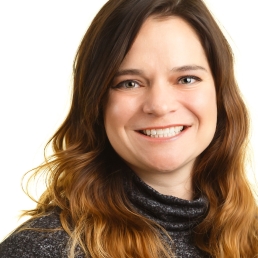
Laura Cardinal
Laura Cardinal is a seasoned humanitarian and development leader with over 20 years of experience in public health, emergency response, and strategic leadership. She has worked in more than 10 countries across Africa and Asia, dedicating over 15 years to Save the Children. Laura specializes in leading complex emergency responses and advancing public health outcomes in fragile and crisis-affected settings. In addition to leading and scaling Save the Children’s emergency responses, she previously served as Chief of Party for USAID’s flagship NOURISH project in Cambodia, driving integrated public health programming that significantly reduced child stunting. She also led the award-winning READY initiative, which strengthened the outbreak readiness of more than 10,000 humanitarian professionals globally.
In her current role as Global Head of Humanitarian Health at Save the Children, Laura oversees the organization’s global humanitarian health strategy, programs, and partnerships. In 2024, her leadership contributed to reaching over nine million children and families living in crisis with lifesaving health interventions.
Laura holds a Master of Public Health and a Master of International Affairs from Columbia University in New York.

Jiho Cha
Jiho Cha, MD, PhD is a physician and global health scholar in the field of humanitarian health and is now a senior lecturer in humanitarian studies (equivalent to associate professor) at the Humanitarian and Conflict Response Institute, University of Manchester, UK. After completing clinical training in 2005, he has worked for North Korean and other marginalized populations around the world (North Korea, Papua New Guinea, Pakistan, Indonesia, China) through non-governmental (Médecins Sans Frontières, Human Rights Watch, Medipeace), governmental (South Korean Ministry of Unification) and international organizations (International Organization for Migration). His research interests lie in political inequality and health, implementation science with health system and digital technologies, multidisciplinary methods in hard to reach population. He received his PhD in international health at the Johns Hopkins University, MD at the Donga University and MSc in forced migration at the University of Oxford.

Rachel Coghlan
Rachel Coghlan is a public health professional with experience spanning clinical practice and international health research, policy, and advocacy. She has worked across health policy and advocacy within international NGOs including World Vision and Save the Children. Her policy experience includes child health, healthy aging, climate change, and palliative care. Rachel is a practicing palliative care physiotherapist in Melbourne. She is a Board Director of Palliative Care Australia, a member of the Palliative Care in Humanitarian Aid Situations and Emergencies Network, and a member of the Australian Palliative Care-COVID-19 Working Group.
Rachel is currently completing a Doctor of Philosophy at the Centre for Humanitarian Leadership, Deakin University. Her research explores the place of palliative care in humanitarian emergencies and crises. The study of palliative care in crises is in its infancy, and prioritization of palliative care by humanitarian agencies has been limited. Her qualitative research investigates how palliative care is currently conceived and enacted in the protracted conflict setting of the Gaza Strip by healthcare workers and community members, with an aim to understand how such care might be better supported in the future.
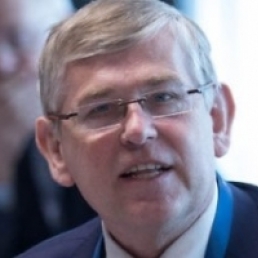
Rudi Coninx
Dr Rudi Coninx was the Senior Policy Adviser to the WHO Assistant-Director General for Emergency Response, and ledthe WHO Interagency Policy for Emergencies Unit/Humanitarian Policy and Guidance Unit from 2016 until his retirement in 2022. The Unit provided policy guidance and support to the WHO Emergency Response Department for operations in disasters and humanitarian emergencies, coordinated with interagency bodies such as the Inter-Agency Standing Committee (IASC), contributed to the global policy discussions on humanitarian actions, and translated global policy into practice. Under his leadership the WHO Attacks on Health Care project was created as well as the WHO Global Health for Peace Initiative.
A medical doctor from Belgium, Dr Coninx graduated from the University of Louvain (Belgium) in 1982. He holds a master’s degree in Public Health from the Johns Hopkins School of Public Health in Baltimore (USA) and a Diploma in Tropical Medicine from the Institute of Tropical Medicine in Antwerp (Belgium).
Dr Coninx has worked extensively in humanitarian emergencies in the field, with MSF (Médecins sans Frontières) on missions in Afghanistan, Bangladesh and Thailand, with the United Nations Border Relief Operation (UNBRO) as health coordinator at the Thai-Cambodian border, with WHO in Pakistan and Afghanistan, responsible for cross-border missions, and with the International Committee of the Red Cross (ICRC) as health coordinator in Sudan, Ethiopia, Mexico, Mozambique, Sri Lanka and Myanmar. He worked at the ICRC headquarters in Geneva as focal point for health programs in Africa, as technical advisor for public health programs, as training coordinator for the H.E.L.P. courses and as focal point for ICRC’s tuberculosis control programs in prisons, publishing extensively on the topic.
Dr Coninx joined WHO in Geneva in 2008 and has been working in various capacities in the department responsible for managing emergencies. He retired from WHO in May 2022 but continues to teach at public health courses and to work as an independent expert in the field of emergency preparedness and response.
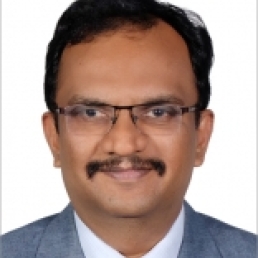
Sathya Doraiswamy
Dr. Sathya Doraiswamy is currently the Operational Support and Quality Assurance Branch (OSQAB) Chief in the Policy and Strategy Division of the United Nations Population Fund's (UNFPA) headquarters in New York.
Sathya has over 25 years of technical, programmatic, and managerial experience from academia, NGOs, and the UN. Until recently, he was UNFPA’s Country Representative at its Iran Country Office, leading the agency’s country programme design and implementation. Before that, Sathya worked in several development and humanitarian contexts for various United Nations Organizations at the field, regional, and HQ levels. Sathya also holds an adjunct status at the Institute for Population Health at Weill Cornell Medicine – Qatar, where he continues to contribute to teaching and the publication of scholarly articles.
Sathya is a medical doctor with a postgraduation in Community Medicine from Chennai, India, and has a professional doctorate from the University of Bath, United Kingdom. He also has an executive master’s in business administration and has received additional diplomas in applied population research, applied statistics, and human resource management. He is board-certified in public health and is a certified lifestyle medicine physician. He is married with two daughters in college.
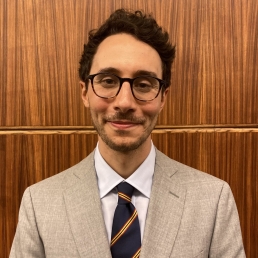
Neil J. Saad Duque
Dr. Neil J. Saad Duque is an epidemiologist and an expert in humanitarian health and the response to public health emergencies. He is an Affliate at the Johns Hopkins Center for Humanitarian Health and is currently working at Gavi on outbreak response management.
He trained in epidemiology and public health at Imperial College London and completed his postdoctoral training at Yale University, where he was a Francqui Foundation Fellow. He also was an EPIET fellow, of the European Centre of Disease Prevention and Control, based at the Robert Koch Institute in Berlin, Germany.
He has worked for several years in humanitarian crises and conflict settings with Médecins Sans Frontières/Doctors Without Borders and the United Nations Relief and Works Agency for Palestine Refugees in the Near East (UNRWA), including in the Democratic Republic of the Congo, Cambodia, Bangladesh, Syria, Jordan and the occupied Palestinian territory.
He also previously worked at the World Health Organization on public health intelligence and outbreak response. He is interested in bridging the gap between academia and the operational realities of health emergencies.
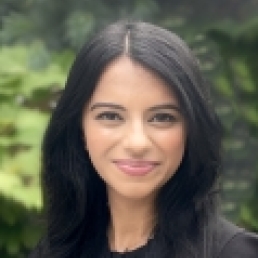
Aqsa Durrani
Dr. Aqsa Durrani is a physician and epidemiologist with a public health focus in humanitarian emergency response and a clinical focus on pediatric emergency and critical care. For more than a decade, she has worked in various conflict and disaster-affected settings around the world, including Sierra Leone, Afghanistan, Pakistan, Lebanon, and Jordan, to improve the provision of health services in both acute health emergencies as well as complex, protracted humanitarian crises. She is a former Fulbright Scholar, awarded for her work surrounding the reduction of mortality in post-conflict settings. She has extensive frontline clinical, educational, and strategic emergency response planning and leadership experience with multiple organizations, including Médecins Sans Frontières (Doctors Without Borders), the UN Refugee Agency (UNHCR), and the World Health Organization Emergencies Programme.
Dr. Durrani received her bachelor’s degree from New York University, her Master of Public Health (MPH) degree from the University of Pennsylvania, and her Doctor of Medicine (MD) degree from the University of Illinois at Chicago.
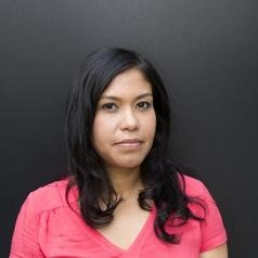
Jenny Garcia
Jenny Garcia is currently a researcher at the Institut National d’Études Démographiques (INED) in France. Her work focuses on the analysis and estimation of mortality trends with imperfect statistics, and the demographic consequences of crises, with particular attention to low- and middle-income countries. She has conducted extensive research on the demographic repercussions of the Venezuelan crisis across the Americas.
She holds a PhD in Demography from Sorbonne University (France), is a graduate of the European Doctoral School of Demography organized by the Max Planck Institute for Demographic Research (Germany), and has Master's degree in Demography from the University of Minas Gerais (Brazil).
She served as a member of the WHO–UNDESA Technical Advisory Group on COVID-19 Mortality Assessment, contributing to global efforts to enhance the monitoring and understanding of pandemic-related mortality. She is presently co-coordinator of the Health and Mortality Panel of the Latin American Population Association (ALAP) and is affiliated as an associated researcher with the Instituto de Estudios Económicos y Sociales at the Universidad Católica Andrés Bello in Venezuela. Dr. Garcia has been awarded several prestigious research grants, including the Seal of Excellence from the European Commission under the Horizon 2020 Marie Skłodowska-Curie Actions for her project “The Demographic Consequences of Humanitarian Crises in Latin America”.
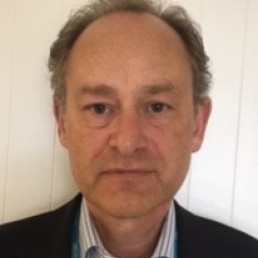
Andre Griekspoor
André Griekspoor is currently working in the Humanitarian Policy and Guidance unit of the World Health Organization' s department for Emergency Operations. Among others, he is responsible for health sector policy development in protracted crises, including appropriate approaches for health system strengthening in fragile contexts, and to support post conflict and post disaster recovery planning processes. He joined the World Health Organization in 2000, and during this period, he also worked for four years as senior evaluation adviser in the Evaluation and Performance Audit unit at WHO.
Before WHO, Andre Griekspoor worked with Médecins Sans Frontières for almost ten years in different positions, including as a field doctor or medical coordinator in South Sudan, Rwanda, Ethiopia and Liberia. During this period he was also health adviser and later the head of the monitoring and evaluation unit in the Amsterdam office.
Andre Griekspoor is a medical doctor with a Masters in International Public Health.
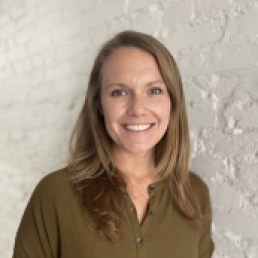
Hannah Hamrick
Hannah holds a MSc in Migration, Mobility and Development from SOAS, University of London. Hannah has extensive experience in the management of multi-sectoral programming and operations in complex humanitarian emergencies. Her field work has been primarily in the Middle East, Sub-Saharan Africa, and the Caribbean with a focus on health, food security, WASH, and shelter programming.
Hannah is currently a Senior Humanitarian Assistance Officer at USAID - Bureau for Humanitarian Assistance
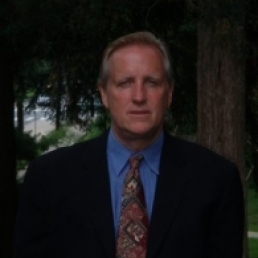
Steve Hansch
Steve Hansch is the Director of E3, Humanitarian Issues, Resilience, Hunger, Evaluations, Monitoring at International Business & Technical Consultants, Inc. He is managing the Ebola response evaluation for USAID/OFDA. He is also an Adjunct Professor at the George Washington University and American University and a non-resident affiliate at ISIM.
Steve Hansch has a long history of field work and implementing and developing disaster response programs in Ethiopia, Sudan, Kosovo, Rwanda, Azerbaijan and Somalia, working with NGOs like the International Rescue Committee, CARE, Relief International, and Partners for Development. In the early 1990s he served as Program Director of the NGO consortium Food Aid Management, dedicated to sharing information about improving the effectiveness, efficiency and accountability of international relief. From 1993 to 1998 he served as Senior Program officer at the Refugee Policy Group, where he led evaluations of NGO field programs and organized a number of lessons-learned workshops among emergency NGOs.
Steve Hansch also has had steady involvement in teaching about disaster prevention and humanitarian relief since designing a course on the subject -- to fill a perceived gap -- at Stanford University in 1976. Since then he has lectured and taught courses on humanitarian aid, with a primary focus on NGO capacity building, at Georgetown University’s School of Foreign Service, Georgetown's McDonough School of Business, the Johns Hopkins University School of Public Health, Columbia University, the University of Wisconsin at Madison (the Disaster Management Program) and American University. He also serves as a SPHERE trainer for NGOs and has taught in the NGO-oriented specialized trainings offered on emergency relief by the International Committee of the Red Cross, USAID’s Office of U.S. Foreign Disaster Assistance (through World Education and Columbia University) and others.
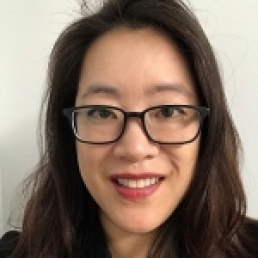
Lara Ho
Lara has worked for over two decades as a public health professional experienced in social/behavioral community-based intervention research and health systems strengthening in conflict-affected settings. Currently based in Washington, DC, Lara has lived and worked in Tanzania, Côte d’Ivoire, DRC, Chad, Myanmar, Sierra Leone, and Switzerland. She worked at the International Rescue Committee for fifteen years in a variety of roles ranging from program management to technical advising and leading the health research team and other strategic projects. She was also the Chief Operating Officer at DuPont Clinic, an all-trimester abortion clinic in DC. She holds an AB from Harvard and Radcliffe Colleges, a BSN from Johns Hopkins University School of Nursing, and an MHS and PhD from Johns Hopkins Bloomberg School of Public Health.
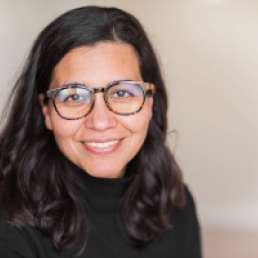
Gurpreet Kaur
Dr. Gurpreet Kaur is a US-board licensed Family Physician and recent JHSPH MPH Graduate. She joins the CHH as a Research Associate to work on the Cholera RRT Study.
Dr. Kaur earned her MD in Israel at the Medical School for International Health (2008) followed by residency training at the University of Cincinnati’s Christ Hospital Family Medicine Program (2012). She has worked in various medical roles for Médecins Sans Frontières in Africa (Ethiopia, South Sudan, Tanzania, and Nigeria). These assignments have focused on maternal-child health including severe acute malnutrition, pediatric infectious disease, and lead poisoning in both stable and fragile contexts. In the US, she has extensive experience delivering primary care to underserved rural and urban populations.
Dr. Kaur earned her MPH from Johns Hopkins in 2020. Since graduation, she has worked short-term assignments on aspects of COVID-19 public health response and as a family physician.
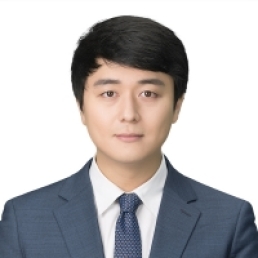
Kwanghyun Kim
Kwanghyun Kim, M.D., is a physician, a board-certified preventive medicine specialist and an epidemiologist. He had earned his medical degree at Yonsei University, Korea, in 2017, and he had finished his residency and fellowship in preventive medicine & public health at Yonsei University, Korea, in 2023.
During his residency and fellowship, his research focused on applying advances statistical methodology in the fields of psychiatric and social epidemiology, using nationwide cohort database. His research topic also covers emerging infectious diseases and preventive measures against them: during the COVID-19 pandemic, he had assessed the effectiveness of non-pharmaceutical interventions among 92 nations with members of “International COVID-19 Research Network (ICRN)”. He had also participated in in the process of developing artificial intelligence to assist in diagnosing infectious diseases in central Vietnam. His current research interest in on bias control and causal inference in the fields of international health and humanitarian health.
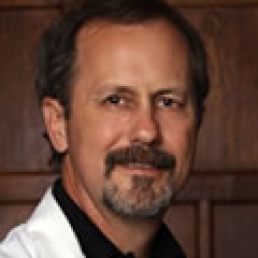
Tom Kirsch
Tom Kirsch, MD, MPH, FACEP, is an emergency physician with expertise in research and education for mass-casualty and disaster medicine and public health. He is currently the Director of the National Center for Disaster Medicine and Public Health and Professor of Emergency Medicine and Public Health at the Uniformed Services University. Prior to coming to USU, he was a Professor of Medicine, Public Health and Engineering at Johns Hopkins University and the Director of the Hopkins Center for Humanitarian Health.
Dr. Kirsch is a noted educator with more than 25 years of experience with a focus on emergency and injury care. He has developed scenario-based emergency care courses for the Department of State and Johns Hopkins University.
He has worked for FEMA, OFDA, DoD, MRC, CDC, UN, WHO, UNICEF and the Red Cross and others. These responses include earthquakes in Mexico, California, Haiti, Chile, New Zealand and Nepal; hurricanes Katrina, Sandy, Haiyan, Harvey and Maria; floods in Pakistan; wildfires in California; the 9-11 terrorist attack in NYC and the EVD epidemic in Liberia.

Loulou Kobeissi
Dr Loulou Kobeissi works as a scientist at the World Health Organization, in the Department of Reproductive Health and Research (2017-till now). She leads the work on SRHR research in humanitarian settings. Previously, she worked as a technical officer at the WHO-Regional office of the Eastern Mediterranean, Division of Non Communicable Disease and Mental Health (2015-2017). She is, also, an Adjunct Assistant Professor at the University of California in Los Angeles (UCLA)- Fielding’s School of Public Health, Community Health Sciences Department (2010-till now).
Prior to joining WHO, she worked as an Epidemiologist at the Los Angeles County- Department of Public Health- Division of HIV and STIs prevention (2013-2015); an Assistant Professor at Mel and Enid Zuckerman College of Public Health and the School of Middle Eastern and North African Studies (2012-2014); and an Assistant Research Professor at the American University of Beirut- Faculty of Health Sciences (2006-2012).
Dr Kobeissi has a Doctor of Public Health (DrPH) in Epidemiology from the University of Michigan’s School of Public Health (UMSPH) (2006), a Masters of Public Health (MPH) in Epidemiology and Biostatistics (2001) and Bachelor of Science (BS) in Environmental Health (1998) from the American University of Beirut- Faculty of Health Sciences.
She has extensive global public health experience (particularly in the fields of: sexual and reproductive health, HIV/AIDs and stigma, conflict and health, and non-communicable diseases). Her specific research areas of strength include the conduct of community-based participatory research (among refugee and displaced populations). She also holds strong expertise in case-control and randomized trial design and analysis.
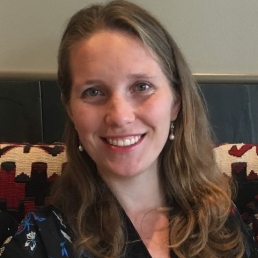
Natalya Kostandova
Dr. Natalya Kostandova is an epidemiologist, with training focused on infectious diseases and quantitative methods, including infectious disease modeling and causal inference. Her previous research focused on integration of human mobility to better capture dynamics of diseases like measles, use of serology to identify gaps in population immunity, understanding impact of the COVID-19 pandemic on health outcomes in humanitarian emergencies, and quantifying impact of attacks on healthcare.
Currently, Dr. Kostandova works as a Sr. Research Advisor at International Medical Corps, a non-governmental organization providing multi-sectorial response in conflict and post-conflict settings. Her work focuses on increasing the use of secondary data from routine monitoring and evaluation systems to inform emergency programming in complex humanitarian settings, including during disease outbreaks and active conflict.
Dr. Kostandova holds an MPH in Global Epidemiology from Emory University, and MHS in Biostatistics and PhD in Epidemiology from Johns Hopkins Bloomberg School of Public Health.
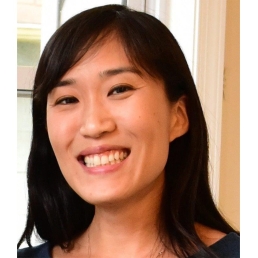
Naoko Kazuki
Dr. Kozuki, MSPH, PhD is the Director of Research and Innovation for Sexual, Reproductive, Maternal, and Neonatal Health at the International Rescue Committee. She also serves as the co-Research Director for the EQUAL research consortium, focused on maternal and neonatal health in conflict-affected contexts. She oversees a team with skills in behavioral science, costing, design, evidence synthesis, research, and strategy to develop, test, and deliver women-centered, life-saving interventions to most vulnerable populations in fragile and conflict-affected contexts. An epidemiologist by training, her research has focused on maternal and neonatal health, as well as child health and nutrition, and she has led research in contexts including Nepal, Nigeria, Somalia, and South Sudan. She completed her MSPH, PhD, and post-doctoral training at Johns Hopkins Bloomberg School of Public Health (JHSPH) and has a BA from Yale University. She is also an Associate Faculty member in the Department of International Health at JHSPH and an affiliate of Johns Hopkins University Center for Humanitarian Health.

Susan Martin
Susan Martin is the Donald G. Herzberg Professor Emerita in the School of Foreign Service at Georgetown University. She previously served as the Director of Georgetown’s Institute for the Study of International Migration. She currently chairs the Thematic Working Group on Environmental Change and Migration for the Knowledge Partnership in Migration and Development (KNOMAD) at the World Bank. Before coming to Georgetown, Dr. Martin served as the Executive Director of the U.S. Commission on Immigration Reform, chaired by the late Barbara Jordan. Among her book publications are International Migration: Evolving Trends from the Early Twentieth Century to the Present; Migration and Humanitarian Crises: Causes, Consequences and Responses; A Nation of Immigrants and Refugee Women. Dr. Martin received her BA in History from Douglass College and her MA and PhD in the History of American Civilization from the University of Pennsylvania. She is a member of the World Refugee Council; serves on the Board of Directors of Jesuit Refugee Service USA and the Center for Migration Studies and is on the advisory boards of the Center for Disaster Philanthropy and the U.S. Government Accountability Office.
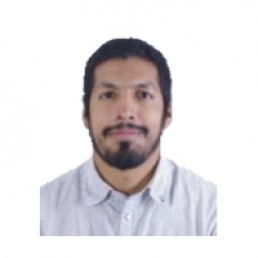
Daniel Martinez
Daniel Martinez Garcia is the paediatric advisor in the Medical Department of Médecins Sans Frontières (MSF), or Doctors Without Borders, in Geneva, Switzerland, and a core member of MSF’s International Paediatric Working Group, which is in charge of all policies and guidelines regarding paediatric care in MSF projects worldwide. Also currently a clinical coordinator of the MSF Telemedicine platform. Member of the organizing committee of the MSF Paediatric Days.
Growing up between Mexico and France has giving him always a global perspective.
Drawing on his background in medicine (MD, Mexico National University), paediatric residency training (National Institute of Paediatrics, Mexico City), and MPH (Johns Hopkins Bloomberg School of Public Health), he has focused on research in paediatrics in resource-limited, humanitarian and disaster settings. He has also published research in telemedicine in paediatrics and nutrition in critically ill children. He is on the editorial board of the Pediatrics in Disasters Course of the American Academy of Pediatrics. Since 2006, he has done field missions with MSF in Niger, Chad, Guinea, Colombia, Democratic Republic of Congo, Central African Republic, Uganda, Kenya, Ethiopia, Tanzania, South Sudan, Mali, Yemen, Palestine, Philippines, Iraq, Syria, Jordan and North Korea.
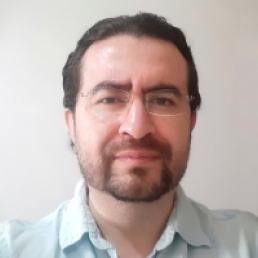
Luis Martinez
Luis Martinez is a Mexican physician and global health expert with experience working, leading, and consulting on global health projects. He is specialized in implementation sciences. Currently, he is focused on topics related to NCDs, precision medicine, and COVID/Long-COVID. Dr. Martinez has experience working in humanitarian settings and representing the work of the civil society in the United Nations and ECOSOC.
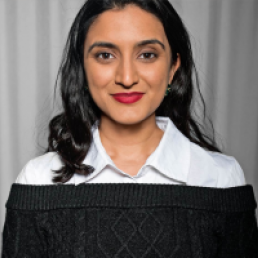
Divya Mishra
Dr. Divya Mishra worked with the Center of Humanitarian Health as a doctoral student in 2016-2019 and has since joined the Center as an affiliate. Dr. Mishra’s training is in social and behavioral interventions with a focus on understanding and adapting interventions to unstable, conflict-affected settings. Her dissertation focused on the role of child protection programs on unaccompanied refugee children’s psychosocial development and transition to adulthood in Greece. She has since founded Terra Firma International to develop and implement an integration project for unaccompanied children based on her research, in partnership with one of Greece’s largest network of children’s shelters.
Dr. Mishra is a former fellow at the Pulitzer Center for Crisis Reporting and is a contributor for Foreign Policy. She is also a Gather Fellow at Seeds of Peace, where she supports projects responding to ongoing political changes in Afghanistan.
Dr. Mishra is finishing her medical training at Dartmouth College and will be matching into Emergency Medicine.
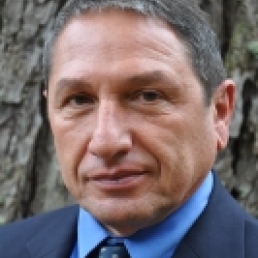
Davide Mosca
Prof. Davide T. Mosca, MD is a medical doctor with more than thirty years’ experience in global health, humanitarian response, and emergencies. A former Director of Migration Health at the International Organization for Migration – the UN Migration Agency – Prof. Mosca earned his medical degree at the University of Milan and specialized in Emergency Surgery and ER at the University of Modena. Prof. Mosca has worked 24 years in Africa and the Middle East. From 1984 to 1994 he worked in Zaire (today DRC) for the Italian Technical Cooperation first as a surgeon, and shifting later to public health. He joined IOM in Mozambique in 1994; as part of the UN Mission (UNOMOZ) he designed health programs for the reintegration of internally displaced people, returning refugees and demobilized soldiers. In 1996, relocated to Angola where IOM was involved with the post conflict programs of the UNAVEM III Mission, assisting the return of displaced people and demobilized soldiers to their lands of origin. In the decade from 1998 to 2008 he was based in Nairobi, Kenya where he led IOM medical teams as the Regional Medical Officer for Africa and Middle East with programs in more than 35 countries. As Director of the Migration Health Department over the decade 2008-2017, Prof. Mosca managed IOM health programmes worldwide, employing more than 1,200 health and operation personnel in more than 60 countries, in the clinical provision of immigration medical examinations and public health related initiatives, in the promotion of health of migrants and displaced populations through a variety of health programmes with particular focus on communicable diseases, and in the response to disasters and emergencies including in 2014-15 the Ebola Crisis in West Africa. Prof. Mosca developed methods for the reduction of health risk associated with travel, and in border management in the context of epidemics. He participated to the process that led to two World Health Assembly Resolutions on migrant health (WHA 61.17 – 2008; WHA 70.15- 2017) and two Global Consultations on Migration and Health in 2010 (Madrid) and 2017 (Colombo). Prof. Mosca is a Commissioner of the UCL-Lancet Commission on Migrant Health that published its report in 2018. Prof. Mosca’s passion and leadership in advancing a global migration health agenda has contributed to the adoption of migration health policies at global level and in several countries, and global health strategies that recognize migration and migrants needs as critical elements in a globalized world. He is Honorary Associate Professor with the Institute for Global Health at the UCL, and contract Professor with the Link Campus University in Rome. Prof. Mosca is a Consultant in Migration Health Policy with WHO and was teacher at the WHO Summer School in Migration Health in 2017 and 2018, and founder of the Migration Health and Development Research Initiative (MHaDRI) hosted by the IOM. Prof. Mosca has published several publications and studies, has contributed to several review panels in global health issues, and has provided training and lectures world-wide.
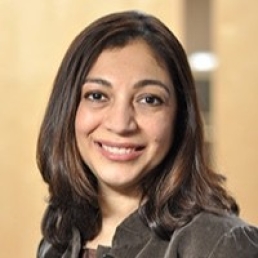
Geeta Nanda
Geeta Nanda is a social and behavioral scientist with over twenty-five years of research and technical expertise in the humanitarian, global health, and international development sectors. I am well-versed in applying a mix of qualitative and quantitative research methodologies to my work, using scientific evidence to inform decision-making. Most recently, I was the Director of Research for Sexual, Reproductive, Maternal, and Newborn Health (SRMNH) at the International Rescue Committee (IRC). I led field-based implementation and operational research studies in sexual and reproductive health in low-resource contexts, including South Sudan and Somalia. Before joining the IRC, I was with Family Health International 360 for fifteen years, providing leadership and technical and managerial oversight to research studies in multiple countries, including the Democratic Republic of Congo, Ethiopia, Kenya, Nigeria, Tanzania, Uganda, Zambia, India, and Bangladesh. I completed my MHS in International Health at the Johns Hopkins Bloomberg School of Public Health and my DrPH in Sociomedical Sciences at the Mailman School of Public Health at Columbia University.
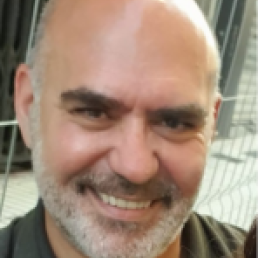
Carlos Navarro
Carlos was most recently the Principal Advisor for Public Health Emergencies for UNICEF, where he led UNICEF's global work in Health Emergencies and spearheaded initiatives such as the RCCE Collective Service and Integrated Outbreak Analytics. He has previously worked at CDC as an emergency epidemiologist (2010-2017) and founded the CDC's Global Rapid Response Team. Before that, he worked as an independent consultant on health and nutrition in emergencies (2005 -2010), and in a number of field assignments and coordination positions for ACF and MSF (1994-2004). He has completed dozens of field emergency and outbreak assignments in field and leadership positions. Carlos’ research work in emergency response has focused on outbreak response and on the treatment and prevention of acute malnutrition. He started the research department of ACF in 2000, and has been involved in the design and implementation of operational research in emergency settings since 1997, obtaining an MSc from LSHTM and PhD from Aberdeen University.
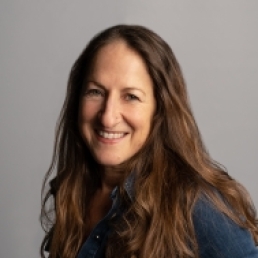
Heather Papowitz
Dr. Heather Papowitz is currently working at the World Health Organization’s Regional Office for Europe (EURO) as the Incident Manager for the Ukraine response covering the humanitarian crisis in Ukraine, the refugee-receiving countries, and the wider impact in the Region. She has over 20 years of experience preparing for and responding to humanitarian crises due to conflict and natural disasters as well as prevention, preparedness, and response to infectious hazards including cholera, Ebola, Zika, influenza, and COVID-19, among others. Throughout her career she has also worked on disaster risk management for health, climate change adaptation, and migration and refugee health and has developed international and regional guidelines to inform policy and field implementation. Through her field experience, she has promoted and strengthened a health systems approach based on a solid risk analysis focusing on primary health care and community-based initiatives. Over this time, she has worked with and held leadership roles at WHO, UNICEF, ICRC/RC, USAID/BHA (OFDA), NGOs, and the Department of Health in New York City. She has lived and worked in crisis-affected countries globally giving her a broad understanding of humanitarian operations in a variety of contexts. She holds a Medical Degree from the Chicago Medical School, trained in Internal Medicine at Mt Sinai in New York City, and has a Master of Public Health from the Johns Hopkins School of Public Health.
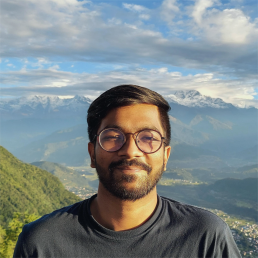
Karan Parikh
Dr. Karan Parikh is a physician and epidemiologist with over five years of experience in global health implementation and operational research.
He began his career in humanitarian health as a medical doctor with Médecins Sans Frontières in 2019. Since then, he has worked with PATH, the Johns Hopkins Center for Humanitarian Health, the International Vaccine Access Center, and multiple local NGOs. Currently, he works as an Epidemiologist with MSF in Northwest Syria and Jordan.
Dr. Parikh specializes in implementing, monitoring, and evaluating people-centered interventions in conflict-affected settings, particularly focusing on disease surveillance, nutrition, and childhood immunization. He also has a keen interest in using geographic information systems to add a geospatial perspective to this work.
He earned his Master of Public Health degree from the Johns Hopkins Bloomberg School of Public Health in 2023 and his Bachelor of Medicine and Bachelor of Surgery degree from Maharashtra University of Health Sciences in 2018.
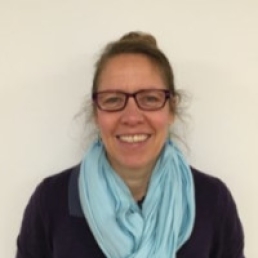
Silke Pietzsch
Ms Pietzsch is a consultant promoting solution-focused and innovative humanitarian and development programming at scale. She is passionate about needs based program design, quality and effectiveness of interventions; and about institutional and individual adult learning and knowledge management processes, coaching, training and capacity strengthening. She promotes nutrition security and nutrition-sensitive approaches, including Nutrition & Health, Food Security & Livelihoods, Water and Sanitation, Hygiene, Disaster Risk Management/Resilience programs to curb undernutrition and poverty. She provides expertise on assessments and feasibility studies, cash-based interventions, social protection, behaviour change, gender and GBV, system strengthening and barrier analysis. She has experience in high level coordination, partner mobilisation and consensus building, monitoring and evaluation, policy application and formulation, and theory of change development. She has expertise in operational and applied research, and is part of the Harvard Humanitarian Initiative leadership seminar guest faculty.
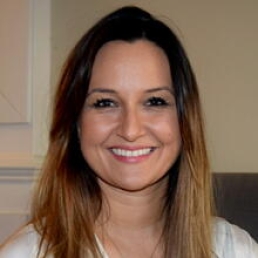
Angelica Ponguta, PhD, MPH
Angelica Ponguta, PhD, MPH, centers her work on the advancement of Early Childhood Development (ECD) in low and middle-income countries with a focus on policy and program evaluation and implementation research. Dr. Ponguta has led and participated in ECD policy-making and policy analysis projects in over 10 countries in Africa (Kenya, Angola, Uganda, Ethiopia, Rwanda), Southeast Asia (Laos, Timor Leste), Eastern Europe (Kosovo, Serbia, Azerbaijan, Kyrgyzstan, Tajikistan and Moldova), Latin America (Peru, Colombia, Nicaragua, Brazil) and the Middle East (Palestine). These projects include the development of comprehensive and integrated ECD policies and national implementation plans, national feasibility studies for ECD program implementation at scale, and an international comparative study on the mechanisms of governance and finance of ECD in four world regions. Dr. Ponguta is currently working on the development and evaluation of a novel school readiness program to build community youth leaders’ vocational skills as early childhood educators in rural Pakistan and coordinated a randomized control trial evaluating a school readiness intervention targeting mothers and children living in Palestinian refugee camps and marginalized communities in Beirut. She is an advisor to groups conducting randomized control trials and observational studies of parenting and school readiness programs in Brazil, Colombia and Saudi Arabia. She is also and advisor to Colombia’s Intersectoral Commission of Early Childhood on the development of a tool to assess the quality of ECD services in the country.
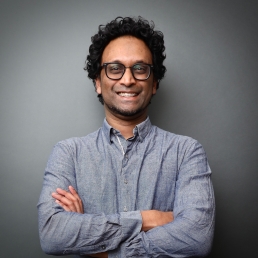
Ruwan Ratnayake
Ruwan is a field epidemiologist with considerable experience in humanitarian contexts and with displaced populations. His current focus is on merging field investigation and modern analytical methods to improve outbreak and humanitarian response models. He recently completed a PhD in epidemiology and mathematical modelling as a Canadian Institutes of Health Research Doctoral Foreign Scholar at the London School of Hygiene and Tropical Medicine, in collaboration with Epicentre-Médecins Sans Frontières. He evaluated the effects of targeted interventions for cholera outbreaks in fragile settings using mathematical modeling and observational studies.
Prior to this, Ruwan was the Senior Epidemiologist for the International Rescue Committee (IRC), providing technical support in humanitarian settings, primarily in the Democratic Republic of the Congo, Myanmar, Sierra Leone, South Sudan, and for the Syria crisis. He covered conflict and public health situation analysis, surveillance and outbreak response (Ebola, cholera, etc.), community health and primary care, noncommunicable disease management, and mortality estimation. He was also the Editor-in-Chief of Conflict and Health. Ruwan has also worked for the World Health Organization (WHO) in Haiti and South Sudan, International Organization for Migration in Vietnam, and he trained as an FETP fellow with the Canadian Field Epidemiology Program of the Public Health Agency of Canada.
Ruwan has published widely both research and public health guidance, including recently on cholera in The Lancet Infectious Diseases and on guidelines for early warning alert and response systems in emergencies for the WHO.
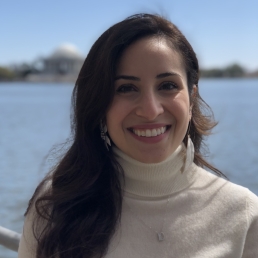
Diana Rayes
Dr. Rayes is a global health scholar whose work examines how political crises, migration, and faith intersect to shape health systems, health-seeking behaviors, and policy. Dr. Rayes currently serves as Program Director of the Faith and Global Health Initiative at the Georgetown University Global Health Institute and is a Nonresident Fellow at the Atlantic Council. Her current book project explores displacement, humanitarianism, and resilience through the lens of the Syrian crisis, bridging structural analysis with refugee narratives. She has also worked with the World Health Organization and UNICEF, where she advises on global mental health and psychosocial support, and holds affiliations with Georgetown’s Institute for the Study of International Migration and the Global Mental Health and Well-being Initiative.
Dr. Rayes is the former chair of the Syria Public Health Network, leading cross-sector efforts on public health in conflict, and has published in The Lancet, Journal of Migration and Health, and Conflict and Health, with thought leadership featured by the Migration Policy Institute and the Newlines Institute. She has been awarded research fellowships from Fulbright (Germany, 2018–2019), the National Institute of Mental Health, the American Scandinavian Foundation, and the Pulitzer Center for Crisis Reporting. In 2020, she was named a Middle Eastern and North African American National Security & Foreign Policy Next Generation Leader by New America.
She holds a PhD in International Health and an MHS in Global Mental Health from the Johns Hopkins Bloomberg School of Public Health, and a BS in Psychology from Arizona State University.
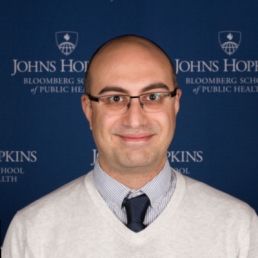
Hazem Rihawi
Hazem Rihawi is a Master of Public Health expert with focus on professional epidemiology and biostatistics. Pharmacist with 9 years of progressive work in pharmaceutical industry, and over 6 years of extensive leadership experience in humanitarian response in two of the largest crises in the world (Syria and Somalia).
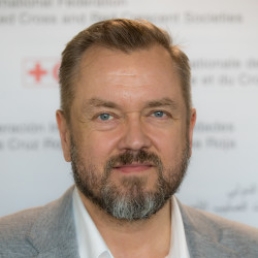
Panu Saaristo
Mr Panu Saaristo is an experienced leader with a robust track record in non-profit organization management, particularly in the realms of Global Health, Emergency Management, and Disaster Response. With a proven aptitude for steering teams and crafting impactful programs, he brings a wealth of knowledge from the humanitarian health sector. Mr Saaristo is a healthcare professional equipped with an Executive MBA from the Geneva School of Economics and Management at the University of Geneva, Switzerland, complemented by an MSc in Disaster Relief Healthcare from the University of Ulster, UK. Mr Saaristo holds the pivotal role of Regional Health Manager for IFRC Europe, overseeing health initiatives across 54 National Societies spanning Europe and Central Asia.
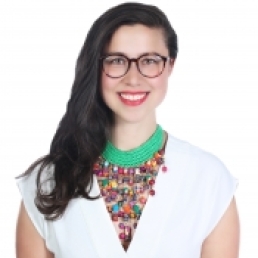
Ana Cristina Sedas
Dr. Ana Cristina Sedas is a dedicated advocate, physician, researcher, humanitarian and advisor with vast experience in the intersection of migration and health. Her unique bilingual and bicultural background allowed her to translate everyday experiences with refugees and migrants into translational research, policy, and implementation. Her previous role as Technical Advisor for the Health and Migration Programme at the World Health Organization allowed her to tap into her experiences in academia, community-based partnerships, humanitarian work and advocacy to transform regional voices into global research priorities shaping the WHO Global Research Agenda on Health and Migration. Her contributions to the field of health and migration go beyond strategy development and understanding the complex and dynamic experience of refugees and migrants across the globe through her dynamic partnership and collaboration with Lancet Migration, Johns Hopkins University and the International Organization for Migration where she served as a multi-country research coordinator to understand the impact of COVID-19 policies on access to healthcare for refugees and migrants in Colombia, Peru and Mexico.
Dipti D. Shah
Dipti Shah is an epidemiologist with 20 years’ experience in refugee health and domestic refugee resettlement. As the State Refugee Health Coordinator and Chief of the Center for Global Migration and Immigrant Health at the Maryland Department of Health (MDH), she is responsible for overseeing the state's refugee and migrant health programs, including the management of all program guidelines, funding, and data; delivery of culturally-informed and language-accessible health services and health education for humanitarian immigrants living in Maryland; and, building partnerships and facilitating collaborations with refugee and immigrant service providers. She currently serves on the National Association of Refugee Health Coordinators (ARHC) Executive Board.
Previously, Ms. Shah conducted tuberculosis policy and advocacy work in Washington, DC and aided in the development and launch of a local public health campaign in rural Guatemala. She earned her Master of Public Health in infectious disease epidemiology from the Johns Hopkins School of Hygiene and Public Health and her Bachelor of Science in biochemistry and molecular biology from the University of Wisconsin. She is also an Associate Faculty member in the Department of Epidemiology at JHSPH.
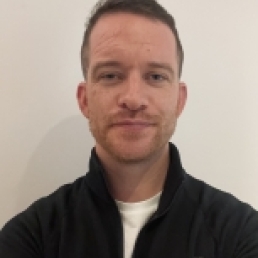
James Smith
Dr Smith, a practising UK physician, has taught and conducted research on global health and humanitarian issues for almost a decade. James has worked in a variety of roles with Médecins Sans Frontières / Doctors Without Borders, including as a physician, Advocacy Manager, Humanitarian Affairs Advisor and researcher in a number of the organisation’s research and reflection units. James’ research interests span humanitarian public health, politics and ethics.
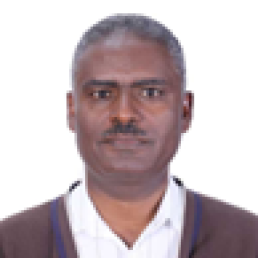
Seifu Tadesse
Mr. Seifu Tadesse is international research and M&E expert with more than 15 years of experience in Africa. Has long years of experience in the design and implementation of monitoring and evaluation systems and research. He worked as Research Technical Manager, Research Team Leader, Principal Investigator (PI), and Qualitative and Quantitative researcher. He has substantial professional experience in research designing and implementation, preparing research qualitative and quantitative tools and research guidelines and organizing and facilitating research capacity-building training, provided routine technical support in data quality assurance. He was involved in preparing a research sampling framework, preparing research proposal, and involved in qualitative and quantitative data collection, data analysis, and preparing reports.
Seifu has been involved in research of multi-sectorial programs such as socio-economic, livelihood, health, and education program studies and evaluations. He was involved in the research and evaluations funded by World Bank, DFID, USAID, EU, Irish Aid, and Canada CIDA. He also worked with WFP, UNICEF, INGO, and Government organizations in Ethiopia and other African Countries such as Zambia, Cameroon, Mali, and Lesotho.
Seifu holds a Master of public health in Health Monitoring and Evaluation, a Bachelor of Arts with Honors in Development Studies, and a Bachelor of Arts in Business Management.
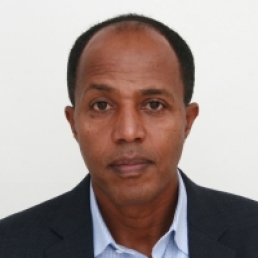
Mesfin Teklu Tessema
Dr. Mesfin Teklu Tessema is the Head of the Health Unit at the International Rescue Committee, where he leads IRC’s efforts in diverse areas of health programming and policy. He has more than 25 years of experience in public health, nutrition, and humanitarian affairs.
Prior to joining the IRC in 2017, Dr. Tessema served in various positions and countries for international humanitarian organizations, most recently serving as the global health lead for World Vision International. He also served as Director of the Geneva office for World Vision International, Senior Nutritionist for Save the Children, and Reproductive Health Advisor for Marie Stopes International in Ethiopia. As a medical doctor, he practiced medicine in Ethiopia's public and private healthcare settings.
He is also an Assistant Professor of Population and Family Health at Columbia University, an affiliate of the John Hopkins University’s Center for Humanitarian Health, and a member of the Gavi vaccine alliance Partnership Team and the COVAX leadership group.
Dr. Tessema served on the funding committee for Elrha’s Research for Health in Humanitarian Crises, as a Civil Society representative in the Investors Group of the Global Financing Facility for RMNCAH, the founder and co-director of the executive course on health diplomacy and humanitarian space at the Graduate Institute of Geneva. He is the author of the health chapter in the 2011 edition of the Sphere Handbook: humanitarian charter and minimum standards in humanitarian response. Dr. Tessema earned his Doctor of Medicine degree from Jimma University, Ethiopia, and holds a Master of Arts in Humanitarian Assistance from Tufts University, Massachusetts, USA.
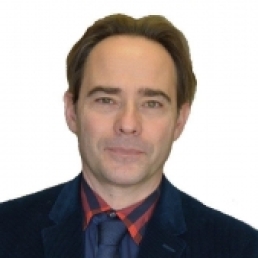
Michel J.J. Thieren
Dr Michel Thieren began his career in 1989 with Médecins sans Frontières as a physician in Thailand's refugee camps. Since then he has held various positions in WHO and other United Nations agencies.
He is now the Director of the WHO Regional Emergency Program for the Eastern Mediterranean, covering 22 countries in the Magreb, Horn of Africa, Middle-East, and Central Asia. In his tenure, Dr Thieren established the new Emergency Program with an operational structure and mandate, articulated under an innovating Regional Emergency Operation Center, based in Cairo. For the past 6 months, Dr Thieren has been detached to establish the Global Health and Migration Program at WHO, with its endorsement by the World Health Assembly 72 (2019).
Since June 2014, Dr Thieren has served a WHO Representative in Pakistan where his salient achievement has been to bring polio under control, with a case load reduction of 95% in three years. Prior to this, he was PAHO/WHO Representative in Bolivia (2011–2014) and Senior Programme Management Officer/Acting WHO Representative in Cambodia (2008–2011). Dr Thieren has also worked at WHO headquarters within the department of humanitarian action, and the division of epidemiology and statistics. From 1995 to 1996 he was Head of the field office for northern Bosnia, and has also worked (1991-1993) as subregional coordinator for WHO/AMRO's Emergency Relief and Preparedness programme, for Central America (based in Costa-Rica) and Andean America (based in Ecuador).
Dr Thieren's work in emergencies and humanitarian action took him to the Democratic Republic of Congo, where he worked as medical coordinator for the UNHCR for the Rwandan refugee crisis (1994), and to Haiti (in 1993 and in 1995), as a Medical Human Rights Observer with the UN/DPKO.
Dr Thieren was a Board Member of Medecins Sans Frontieres (Swiss Section) in 1999-2000, a Member of the WHO Ethic Review Board (2003-6), and a guest editor for OpenDemocracy.Net where he published a dozen of articles on humanitarian practices and policies.
Dr Thieren holds a Doctorate in Medicine and Surgery from the Catholic University of Louvain, Faculty of Medicine, Brussels, as well as Diploma in Tropical Medicine from the Prince Leopold II Institute of Tropical Medicine, Antwerp. Dr Thieren also holds a Masters Degree in Public Health from John Hopkins School of Hygiene and Public Health, Baltimore.
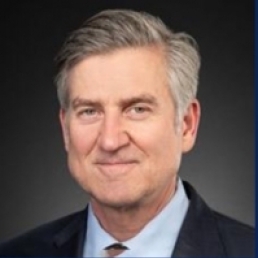
Mitchell Wolfe
Mitchell Wolfe is a medical epidemiologist, global health strategist, and diplomat with extensive global public health experience, he had 24 years of government service, 21 with U.S. Centers for Disease Control and Prevention (CDC), and 3 years with HHS Office of Global Affairs, most recently as the CDC’s chief medical officer from 2019 to 2022. He has also held positions as deputy assistant secretary for global affairs at the Department of Health and Human Services (HHS) Office of Global Affairs and as the CDC country director in Vietnam and in Thailand. In these roles, he has been a senior adviser to U.S. government leaders, led the implementation of the CDC’s global health strategy, and represented the HHS and CDC to the highest levels of foreign governments, multilateral institutions such as the World Health Organization, the private sector, and nongovernmental organizations. He has extensive experience in working to combat global infectious disease threats, pandemic preparedness and response, and addressing non-communicable health issues.
Earlier in his career, he was a project officer for a large U.S.-based HIV/AIDS cohort study and was involved in the U.S. government response to anthrax attacks, as well as investigations of lead poisoning, heat-related mortality, syphilis outbreaks, and foodborne and waterborne diseases. Dr. Wolfe is a graduate of the CDC Epidemic Intelligence Service (EIS) program. He earned his medical degree from the University of Vermont College of Medicine, his master of public health degree from the University of California, Berkeley, and his undergraduate degree from the University of California, Santa Barbara, in English literature. In 2020, Dr. Wolfe retired from the Commissioned Corps of the U.S. Public Health Service at the rank of rear admiral.
Jeffrey Yau
Dr. Jeffrey Yau is an AI and Data Science & Engineering executive, econometrician, and public health researcher dedicated to improving the health and well-being of vulnerable populations, particularly children, in resource-constrained settings. At the Johns Hopkins Center for Humanitarian Health, he participates in research on climate-induced displacement and migration using machine learning and statistical models. In his current research, Jeffrey used AI-driven forecasting and spatial-temporal models to strengthen early warning systems for food insecurity in crisis-affected regions.
Jeffrey's career began as an undergraduate research assistant at UCLA/RAND, analyzing the Indonesia Family Life Survey (IFLS) data. During his PhD in Economics at the University of Pennsylvania, he served as a research associate at the Penn Medical School, the Wharton School, and the World Bank, developing novel econometric methods to estimate the causal impact of SEECALINE, Madagascar's nationwide community-based nutrition program, on children’s health outcomes. This work provided crucial evidence for policy decisions that expanded the program to improve child nutrition and maternal health across the country.
Beyond academia, Jeffrey brings over 15 years of senior leadership experience building AI, data science, and engineering organizations at companies such as Amazon and Walmart Global Tech, where he led the development of large-scale systems for time series forecasting for a wide range of applications, resource optimization, and real-time analytics. He has also taught advanced statistics, econometrics, machine learning, and deep learning at UC Berkeley, Cornell, NYU, and Virginia Tech, and advised startups and venture capital firms on health-related investments.
Currently pursuing his Master of Public Health at Johns Hopkins Bloomberg School of Public Health with plans to continue to the DrPH program, Jeffrey focuses on applying geospatial science, advanced quantitative methods, and frontier technologies to address humanitarian health challenges.

Pooja Yerramilli
Pooja Yerramilli is a Health Specialist (Young Professionals Program) at the World Bank and a Board-certified Internal Medicine physician. She is passionate about advancing health equity and health emergency preparedness, response, and resilience (HEPR), by improving multisectoral social determinants of health (SDOH) and universal health coverage (UHC) - with focus on non-communicable diseases (NCDs), primary health care (PHC), and human resources for health (HRH). At the World Bank, her work focuses on UHC and HEPR. Prior to joining the World Bank, she was a Global Medicine Fellow at Massachusetts General Hospital and Boston Health Care for the Homeless Program, as well as the Policy Advisor for Seed Global Health (an NGO that focuses on strengthening HRH in countries with significant shortages). Previously, she led and contributed to academic, advocacy, and policy projects on SDOH, UHC, and NCDs at the World Health Organization, Harvard University, and several NGOs including the Young Professionals Chronic Disease Network (YPCDN).
She completed her BA in Political Science (concentrating on global health politics & policy) at Yale University; MSc in Health Policy, Planning, and Financing at LSE/LSHTM; and MD at University of Pennsylvania. She completed her residency and fellowship in Internal Medicine/Global Medicine at Massachusetts General Hospital (Harvard University).
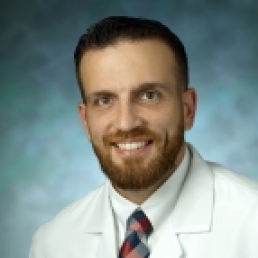
Bara Zuhaili
Center for Humanitarian Health
Dr. Zuhaili is full-time vascular surgeon and is dual board certified in both general and vascular surgery. He has a Master of Public Health from Johns Hopkins School of Public Health. Beside his daily role in teaching medical students, surgical residents, and vascular fellows at Michigan State University, Dr. Zuhaili is an accomplished scholar, having contributed to dozens of national and international presentations and peer-reviewed manuscripts. Dr. Zuhaili has participated in multiple medical missions overseas and has witnessed firsthand the daily struggle of refugees around the world. He has a strong interest in global health in general and in improving the quality of care in low- and middle-income countries.
